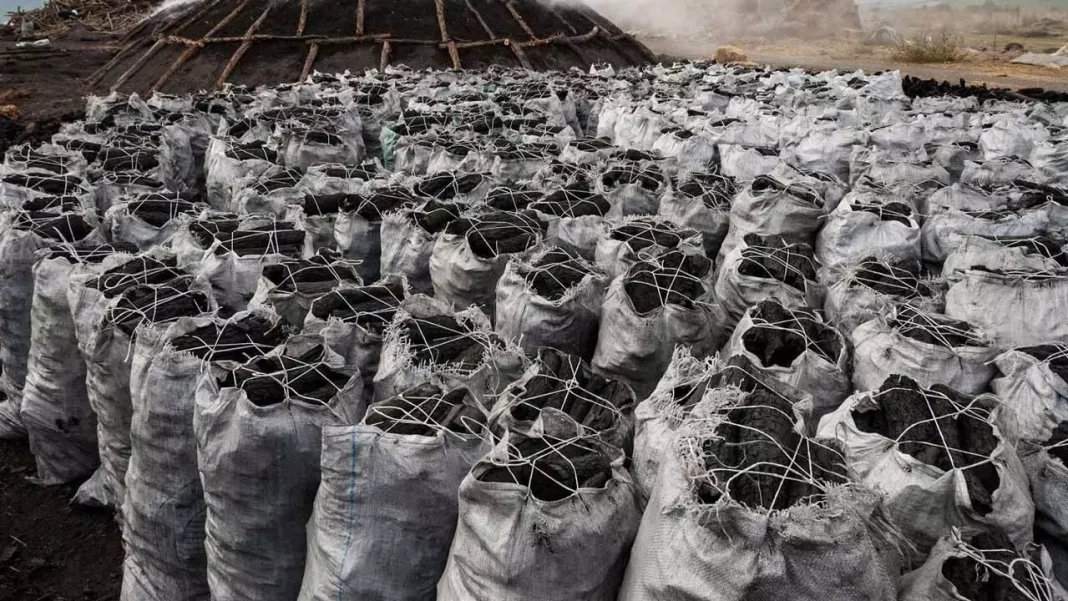The increasing charcoal trade in Nigeria has prompted the government to issue a warning, stating that it is rapidly posing a serious threat to biodiversity, forest survival, and the livelihoods of millions of people.
Dr. Aishetu Ndayako, Permanent Secretary of the Ecological Project Office (EPO), spoke Wednesday in Abuja at a high-level stakeholders meeting. He characterized the charcoal sector as a double-edged sword that is both essential for energy and destructive to Nigeria’s forests.
“Millions of people still rely on charcoal for their livelihoods, but its unregulated trade is causing a massive environmental crisis,” she said.
The event, “Trade and Trees, Rethinking Charcoal Production and the Vanishing Forests,” organized by the Centre for Renewable Energy and Action on Climate Change (CREACC NG) and sponsored by EkoEnergy, brought together academics, environmental advocates, and government leaders to address the nation’s escalating ecological crisis.
Dr. Ndayako disclosed that entire ecosystems are being destroyed to meet both local demand and exports abroad, as more than 70% of Nigerians rely on biomass for cooking. She depicted a bleak picture: carbon sinks lost with little to no replanting attempts, forests under assault, and biodiversity disappearing.
“Regeneration is almost nonexistent, demand is always increasing, and trees are being hacked down carelessly. Slow ecological collapse is what we are seeing,” she said.
She urged for immediate reforms, including the harmonisation of national forest and biomass energy laws, better regulatory enforcement, and grassroots involvement in tree planting, agroforestry, and sustainable woodlot management.
“Forests must no longer be viewed as expendable resources,” she continued.
“It is imperative to expand the use of cleaner energy sources, such as solar cookstoves, biogas, and LPG, particularly in rural and peri-urban areas.”
Speaking to the forum as well, Prof. Suwaiba Ahmad, the Minister of State for Education, emphasized the importance of environmental education in schools through Mrs. Aminulai Modupe.
She supported programs such as the Diaspora Bridge, which seeks to stimulate creativity and research in STEM-related climate solutions.
“Students must be taught to value trees, biodiversity, and sustainable living from primary school through universities,” she stated.
Read Also: Benue Governor Alia Dissolves Executive Council, Appoints New Chief of Staff
Usman Muhammad, Executive Director of CREACC NG, presented an even more shocking image: Nigeria, the world’s second-biggest producer of charcoal and Africa’s largest producer of charcoal, is losing an astounding 1.5 million trees every day, with states like Niger, Benue, and Kogi suffering the most.
“A 3.5% annual loss of forests, CO₂ emissions, land degradation, and even desertification are all caused by this surge in deforestation,” he disclosed.
“The environment is a ticking time bomb.”
Muhammad encouraged immediate collective action and announced preparations for a National Summit on Forest and Energy Sustainability in June 2026.
Stakeholders assert that action must be taken immediately to prevent Nigeria’s green cover from becoming a thing of the past as forests disappear and the effects of climate change intensify.
Distribute



